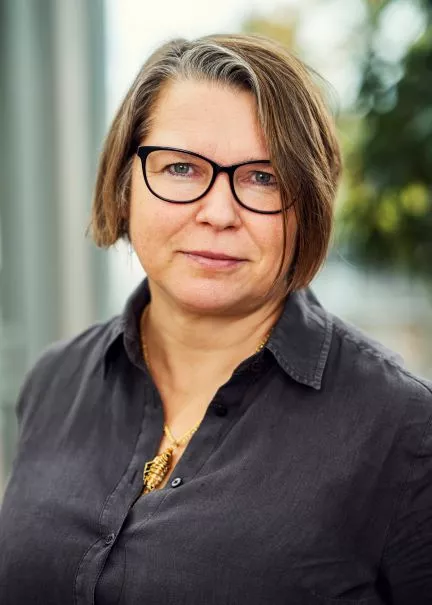Katja Lindqvist on collaboration with Region Skåne
Katja Lindqvist is an associate professor at the Department of Service Management and Service Studies who researches into organisation and financing in the cultural sector. Right now she is a Flexit researcher focusing on regional investments in cultural and creative industries, through which she collaborates with Region Skåne's cultural administration.
Is there any type of collaboration in which you have been involved and with which you are particularly pleased?
– I have collaborated with municipalities and public authorities throughout my years as a researcher, but in recent years I have mainly developed my collaboration with Region Skåne's cultural administration. I find regions to be exciting partners as their development initiatives are almost entirely based on collaboration with various societal actors, be they private, public or from civil society. Collaboration over the past few years has included both evaluation and follow-up research assignments, contract education and most recently a position as a Flexit researcher, which meant that I conducted research into regional political initiatives while actually sitting together with the staff at the administration in Malmö.
In what way was this particularly successful?
– As I have had recurring contact with, and assignments for, Region Skåne's cultural administration, they have been able to assess my skills over time, and I have gained greater insight into the way political organisations work. Through this, mutual trust between each party has had plenty of time to be tested and strengthened. It may not always be entirely easy to understand what researchers can and cannot contribute until they collaborate in practice. In my experience, Region Skåne values the integrity of researchers highly, and I feel it is this that ensures they develop their expertise. This also means they have respect for the criticism researchers may have of their own activities. After all, it is not a given that organisations can take criticism to be the valuable knowledge of their own business that it is, if it is well substantiated and communicated in a constructive way.
Did you come across anything that you think could be problematic when collaborating?
– My experiences of collaborating with public organisations have generally been positive, but I have also always been careful to clarify in agreements and conversations that I, as a researcher, want to be able to publish scholarly texts based on information that I have collected during a collaboration (taking privacy aspects etc. into account, of course). It is important to make the results of my work available to as many people as possible, not just the client, as lessons drawn from how different forms of political support work in the field of culture can be relevant to many groups in society. When you want to make evaluations and reports publicly available, it is important to have a continuous dialogue with everyone involved and to be clear that the end result will be published. It also means that you need to foster trust with those you evaluate or study, and I primarily achieve this by ensuring everyone involved has the opportunity to read and comment on my description of a process or different views. Sometimes this can mean leaving out certain details about what you know from your final report, unless it is crucial to drawing conclusions or understanding a context.
– I think it is good to have agreements in place for my assignments stating that I am free at a later stage to formulate myself in other ways than in my report to the client. That said, it is important to have respect for respondents' privacy even in research publications.
What was the result of your collaboration?
– Over the years, it has mainly involved evaluations and follow-up research at public organisations, which has resulted in reports for the client and in published research. The assignments have served as a basis for various political decisions. Municipalities, public authorities and regions have wanted to have an independent assessor of the activities they finance, and in this way I have contributed to a responsible use of public funds, but also provided expertise of how various public grants and support contribute to both political goals and to participation in cultural activities. My recurring collaboration with Region Skåne's cultural administration has led to a more in-depth collaboration over the years. For example, I have been able to provide better contacts between Lund University and the cultural administration for initiatives concerning cultural collaboration – something that has become an area for development at the University in recent years.
Contact
Katja Lindqvist
katja [dot] lindqvist [at] ism [dot] lu [dot] se (katja[dot]lindqvist[at]ism[dot]lu[dot]se)
+46 42 - 35 66 27


